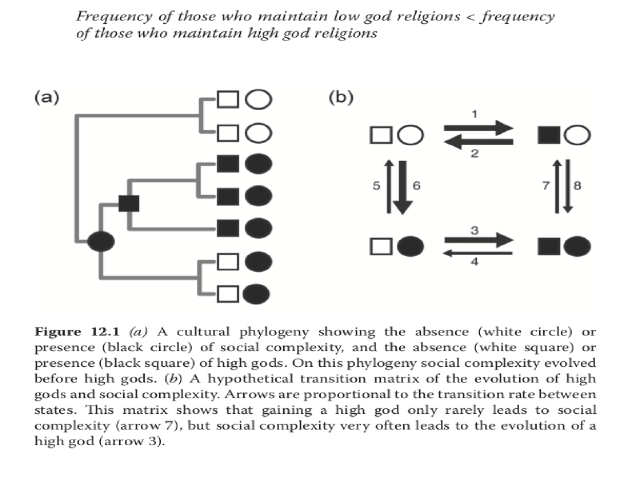Why do religious cultures evolve slowly? The cultural evolution of cooperative calling and the historical study of religions

Authors:
Citation:
Details:
Published: 11 November, 2013.
Download:
Abstract:
The languages and folkways of ancient peoples hold little relevance for us, except in one respect: the religions of the ancient world remain our religions. Though religions change, core features of the scriptures and rituals of the world’s most popular religious traditions appear to have been conserved with remarkably high fidelity. We suggest how this striking conservation may be explained from an evolutionary model for religious cooperation according to which slow religious change facilitates cooperation among strangers. At the end, we clarify how historians of religion, in collaboration with psychologists and computational biologists, might test and improve models such as ours.